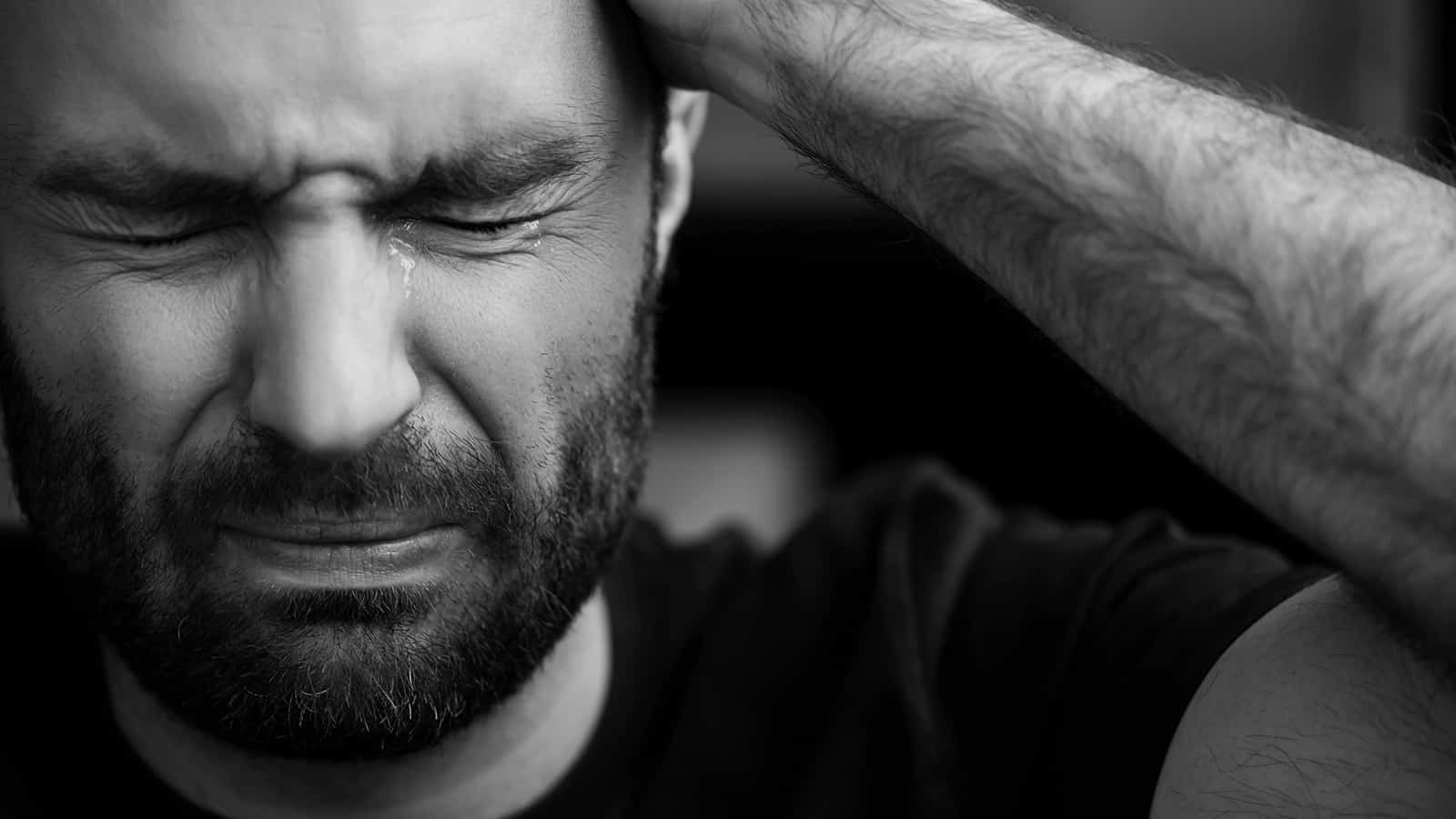New research disproves the myth that “men don’t cry,” showing they shed tears more than women. They may not often put their emotions on display, but they still feel deeply. Men have a different way of expressing their pain and frustration.
Perhaps the stigma attached to men’s mental health makes them uncomfortable with vulnerability. Men have historically been viewed as the protectors and leaders of society, making them feel they can’t show weakness. Previous generations expected men to remain strong and stoic no matter what they faced.
Of course, if men feel they have to hide their feelings, it sets them up for mental problems in the future. While much progress has been made to dismantle toxic masculinity, men still suffer behind closed doors.
The Need to Destigmatize Mental Health Needs (It Is Okay to Cry!)
Men desperately need our support to normalize mental health treatment
According to the American Foundation for Suicide Prevention, men died by suicide 3.63x as often as women in 2019. White males accounted for nearly 70% of these deaths.
Mental Health America states that over 6 million men suffer from depression each year in the US. However, this number is likely higher as most cases go undiagnosed. Men tend to seek help far less often than women or underreport symptoms.
Tragically, men are more likely to die from alcohol or drug-related causes than women. According to the National Institute on Alcohol Abuse and Alcoholism, about 68,000 men and 27,000 women die from alcohol abuse each year. Men also misuse drugs about 2-3 times more often than women, leading to fatal overdoses.
These statistics highlight the dire need to support and encourage male mental health treatment. Men shouldn’t suffer in silence just because they learned outdated ideas about societal expectations. However, it seems the tide is turning, and men are finally feeling more comfortable seeking help.
Researchers Reveal How Often Men Cry (More Than You Might Think)
Most people say they feel better after “crying it out” since it releases tension and emotions. Crying is a normal, healthy response to this crazy ride we call life. Luckily, it seems that more men agree with the statement than ever before.
A study of over 2,000 Americans asked both men and women how often they cry. The survey performed by OnePoll on behalf of Vida Health found that men cry about four times per month. Shockingly, women reported crying only three times a month.
That equates to 48 cries a year for men and only 36 for women.
What’s more, the men surveyed for the poll also sought professional mental services more often than women. Two-thirds of men have gotten help versus half of the women surveyed.
Even though men have made progress ending the stigma, they still feel guilty seeking treatment. Nearly twice as many men (63%) reported hiding that they got treatment for mental health than women (34%).
Males also admitted they’d feel embarrassed (50%), ashamed (40%), or afraid (39%) if friends or family found out about the treatment. This compares to female respondents, of whom 23% would feel embarrassed, 17% would feel shame, and 16% would feel fear.
Ending the Stigma About Mental Health and Men
The stigma surrounding men’s mental health may explain why men with mental disorders often turn to maladaptive coping mechanisms. The survey revealed that men turn to alcohol (49%), drugs (40%), or self-harm (35%) to numb their feelings. (Maybe a good cry could help avoid this!)
The survey results mirror the statistics cited by the National Institute for Alcohol Abuse. Women appeared far less likely to engage in these behaviors to cope. Only 27% reported abusing alcohol, 23% resorted to drugs, and 20% engaged in self-harm.
Only 32% of all respondents disagreed that men aren’t as emotional as women and don’t suffer from mental disorders as often. Furthermore, 55% said that women have more support than men, so they’re more inclined to get mental health treatment.
Nearly two-thirds of respondents agreed that society stigmatizes seeking mental health treatment – 61% of women and 69% of men. 40% of those polled said men face this stigma more often, while 34% believe women do.
Among baby boomers (57 years or older), 43% reported that men face stigma, while only 15% said that women are likely to.
Widespread Agreement on the Issue
Both genders seem to agree about where this stigma comes from. They often say it’s friends and family who shame them the most. Men, however, reported that friends stigmatized them more often (19%) compared to 13% of women.
Just remember, no matter what anyone says, it’s okay to cry and feel emotions. It’s healthy to seek treatment when feeling depressed, anxious, or any other distressing emotion. Don’t let others dictate your mental health. Whether you’re male or female, it’s important to advocate for your mental wellness.
Hopefully, this survey will help men, in particular, feel more comfortable seeking mental health treatment. Forget the idea that boys don’t cry because it’s toxic, outdated, and sexist. Men feel emotions just as deeply and often as women and deserve the same understanding about mental illness.
What the Experts Say:
“Over the past two years we’ve made tremendous progress in destigmatising mental health ailments, but there’s still so much work to be done — especially for men. So many men feel like they need to keep their feelings to themselves, tucked away and shielded, otherwise they’ll be labeled as weak and lesser-than. In reality understanding those feelings, embracing them, and seeking out the assistance that can help them feel better is just about the bravest and strongest thing a person can do.” — Vida Health Chief Clinical Officer Chris Mosunic, PhD.
Final Thoughts on a Survey Showing Men Cry More Than You Know
Men learn to sweep their emotions under the rug and take care of business. However, this attitude eventually catches up with them as stress takes its toll, and they never receive the tools to manage it. A survey by Vida Health revealed that men have begun to reject this toxic masculinity in today’s world. They feel more comfortable seeking treatment for mental conditions and cry more often than women!
As a society, we’ve made a lot of progress with holding space for men to express themselves openly and honestly. They’re humans, too, not unfeeling robots, and they deserve to have their voices heard and their mental health looked after.
















 Community
Community

